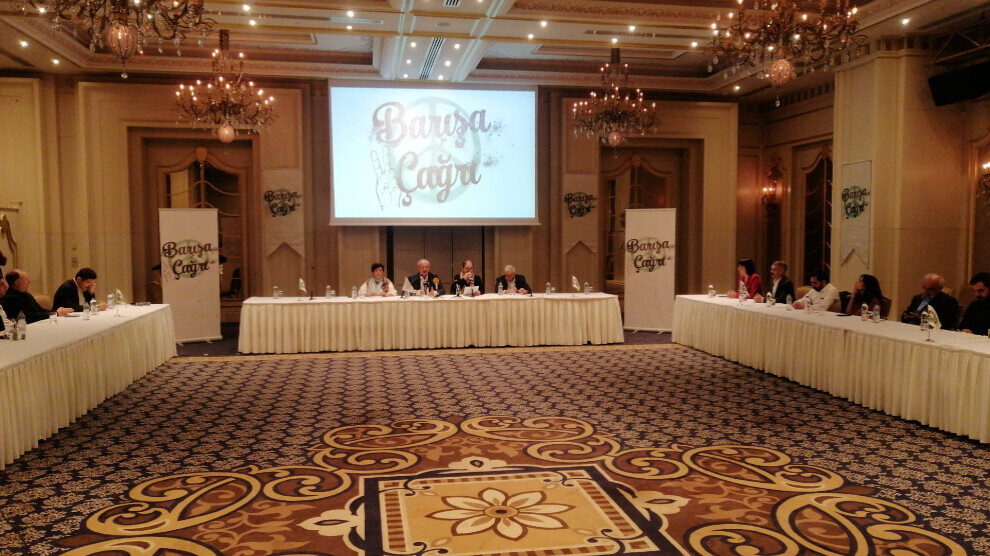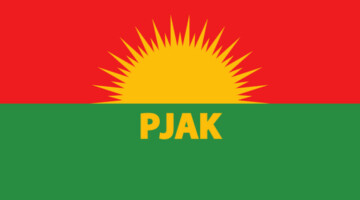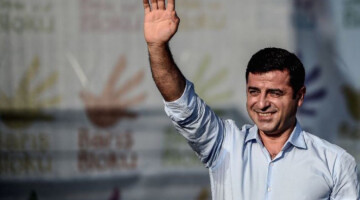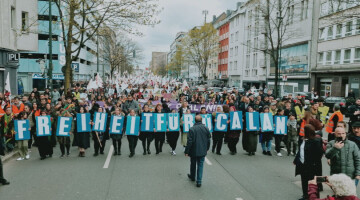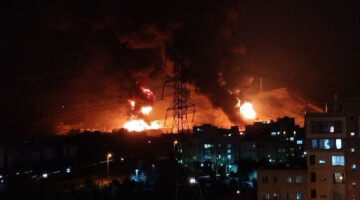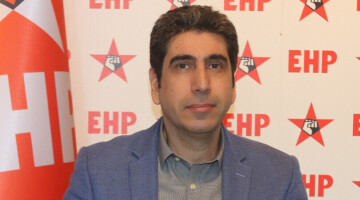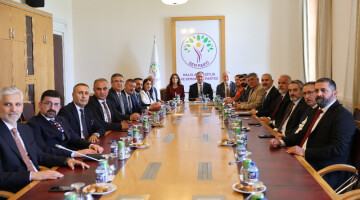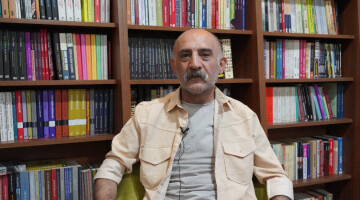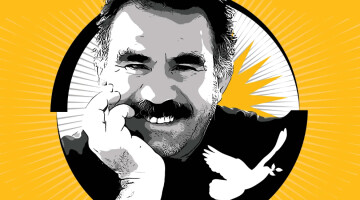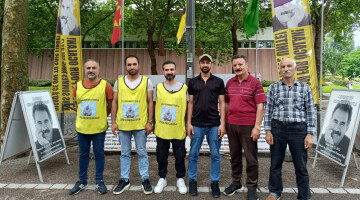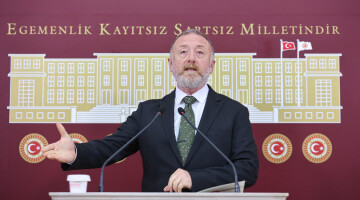78 personalities, including politicians, journalists, intellectuals and artists, presented their declaration “Appeal for Peace” calling for a democratic and peaceful solution to the Kurdish question.
The gathering in Taksim, Istanbul was monitored by a large number of journalists, including from the international media, and attended by representatives of non-governmental organisations, academics, politicians, authors and artists, in addition to signatories.
The opening speech was made by the Human Rights Association (IHD) Honorary President Akın Birdal, and the declaration was read out by human rights activist Nimet Tanrıkulu, one of the signatories.
The declaration recalled the “resolution process” seeking a democratic and peaceful solution to the Kurdish question between 2013-2015, which, it said, achieved an environment of social tranquility and peace for the first time in Turkey and witnessed important developments, but ended up in failure.
The declaration stated that the negotiations held on Imrali (prison island where Kurdish leader Abdullah Öcalan is kept in captivity) within the knowledge of the government were among the most vital factors that created this peaceful environment.
The declaration listed the developments in the mentioned period of time as follows: a special law was enacted for this dialogue process, a Committee of Wise People was established by the government, the ‘Peace and Solution Process’ in Turkey was discussed and reports were prepared in line with the Committee of Wise People's work throughout the country, a peaceful solution to the Kurdish question was proven possible, and people offered full support.
The most basic feature of this process was the fact that the main interlocutor of talks was Abdullah Öcalan, as suggested by the Kurdish side, it noted.
The declaration pointed out that the country ended up in a spiral of conflict and multiple crises, mainly an economic crisis, after the failure of the Peace and Solution Process in 2015.
“This process, which has deepened more and more since 24 July 2015, and continued in the lands of Turkey, Iraq and Syria, has come to the point of weakening, corrupting and consuming the country in political, legal, economic, moral and cultural aspects. The regime in Turkey evolved into a completely authoritarian one. On the other hand, the political and social opposition in Turkey couldn’t prevent this transformation, which fed on a deadlock on the Kurdish question. As the authoritarian government exerted its influence on political opponents, the judiciary was politicized more and more, and the policy of imprisonment became a key means of repression. This period, which was shaped in line with the political ambitions of the regime, got to such a point that even the existing laws cannot be implemented any more, as is seen in the case of Imrali Island Prison. There has been a serious deviation from national and international legislation, jurisprudence and norms of law.”
The declaration continued: “In the face of all these truths, the construction of social peace is the foundation ground of a democratic system before anything else. It falls on the political parties in the Parliament of Turkey and pluralist, inclusive and dynamic social movements to take action for peace. Opposing the policies of war pursued by the social opposition and the parliament and pushing for a democratic solution and peace will support and consolidate both grounds mutually.”
The declaration stated that building peace is the most urgent duty of humanity in the reality of the Middle East, which has today turned into a fireground, and condemned all the unlawful practices in Palestine, North-East Syria, Iraq, Karabakh and Ukraine.
“Remaining silent on these policies which lead to deaths and forced displacement, is a result of the lack or impotency of politics for peace. Social issues can only be resolved by taking dialogue, reconciliation, equality, justice and freedom as references. Our effort is to seek peace and to find the courage to take its path. Peace will enable the building of social health, which will make us stronger as a whole.”
“As was proven during the attempts to build peace between 1923-2015, Abdullah Öcalan is the main interlocutor who can take initiative and produce a solution. Öcalan, who has a critical role in a democratic and peaceful solution to the Kurdish question, has been deprived of all his constitutional and legal rights for 32 months. His family and lawyers can receive no news from him. We highlight the need for an end to this unlawfulness and respect for his rights. We believe that Öcalan will provide major contributions to the socialization of peace, the building of which is of historic importance for Turkey. On this basis, we call on the government to end the unlawful practices of isolation. We invite the political and social opposition to strengthen the politics for peace. As has been proven by the latest developments, the worst peace is better than the most righteous war.”

